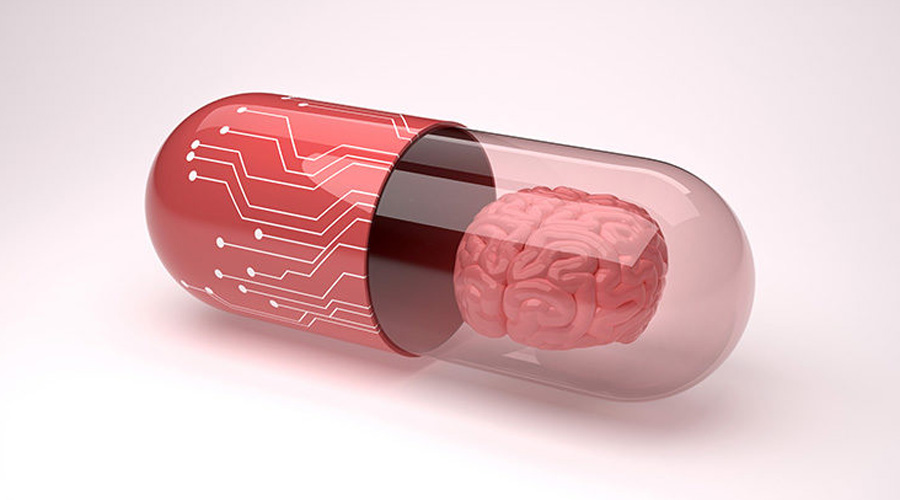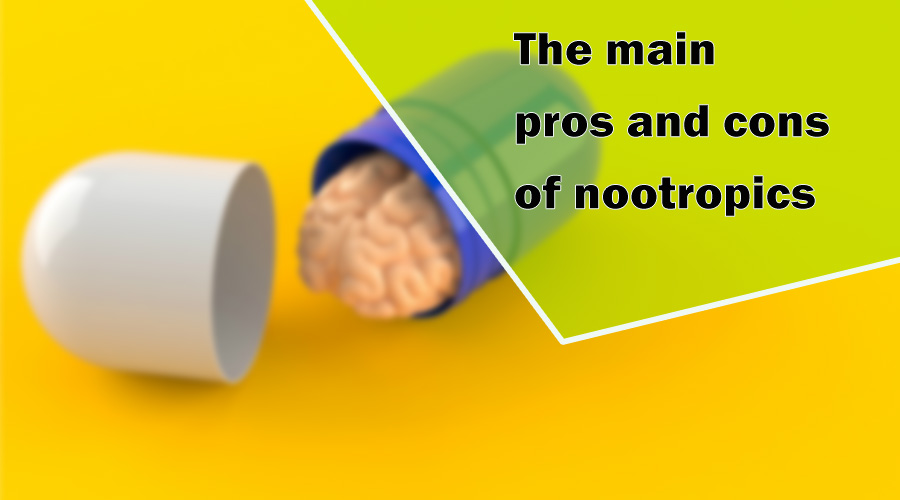Nootropics are substances that purportedly improve cognitive functions. Although the effects of nootropics are still being investigated, there are a few main pros and cons of using them. Some people believe that nootropics can help improve skills like memory and focus, while others believe they have no real benefits. It is also important to note that some people may experience negative side effects from nootropics, so it is important to discuss any potential risks before taking them.
Table of Contents
What are nootropics?

Nootropics are a class of drugs that act to improve brain health. They are often referred to as “smart drugs” because they help users focus, think more clearly, and learn faster. Some popular nootropics include modafinil (Provigil), methylphenidate (Ritalin), and aniracetam (Nootropic).
Modafinil is a medication that has been used for the treatment of sleep disorders, narcolepsy and shift work disorder. It was first synthesized in 1964 and has recently been investigated as a nootropic agent. Modafinil increases wakefulness and decreases sleepiness. It also has positive effects on cognitive function, motivation and attention span.
In addition, ritalin is a stimulant medication that is prescribed to treat attention deficit hyperactivity disorder, or ADHD. It works by improving focus and attention, and has been shown to be effective in treating symptoms such as hyperactivity, impulsiveness, and difficulty staying organized. Ritalin is also known to have some positive side effects, such as improved mood and increased productivity.
Further, aniracetam is a nootropic agent that has been shown to have cognitive enhancing effects in rodent models of learning and memory. Aniracetam also stimulates the release of GABA, which may contribute to its cognitive benefits.
Nootropic pros

Nootropics have been around for a while now, and there are many people that swear by their benefits. Here are seven pros of taking nootropics:
Safe to Consume
In recent years, the term “nootropics” has been gaining more and more popularity in the scientific community. This is because nootropics are substances that have been shown to improve cognitive function, such as memory recall or IQ. Nootropics are generally safe and well-tolerated, with few reported side effects. Some of the most commonly used nootropics include caffeine, nicotine, and Modafinil.
Work productivity
Work productivity is a major concern for many people. Nootropics can help to improve this, as they have been shown to improve cognitive performance in different tasks. Some nootropics, such as caffeine, have been shown to be more helpful than others. It is important to choose the right nootropic for the task at hand, as some might not be effective for certain areas of work.
Long-term benefits
The long-term benefits of nootropics are still unknown, but they may include improvements in memory, attention span, and cognitive productivity. Some of the most common nootropic supplements used to enhance cognitive performance and attention span include: caffeine, piracetam, choline, L-theanine, and Rhodiola rosea. These supplements work together by increasing blood flow to the brain, boosting energy levels, improving focus and concentration, and calming anxiety.
While there are many different options when it comes to nootropic supplements, it is important to consult with a doctor before starting any supplement regimen. Taking too many nootropics can lead to negative side effects such as tolerance buildup and addiction.
Physical performance during exercise
Many people believe that nootropic supplements can help in improving cognitive function and physical performance during exercise. These supplements have been shown to increase energy levels, motivation, vigilance and concentration. They are also said to improve reaction time and overall task performance.
Little to no side effects
Nootropic supplements are supplements that have been traditionally used to improve cognitive abilities and performance. However, these supplements can also have other benefits such as reducing anxiety and improving mood. Some nootropic supplements have little or no side effects, making them an attractive option for those looking for a natural way to improve their cognitive abilities.
Versatility
Nootropic supplements are a growing industry and there is no one-size-fits-all approach when it comes to using them. Some people find them helpful for focus, others for energy, and still others for cognitive enhancement. There are many different types of nootropics and each person may find the best fit for them based on their individual needs. Some common nootropics include choline supplements, magnesium supplements, and L-theanine.
Natural

Nootropics can be natural or synthetic. Natural nootropics include supplements such as omega-3 fatty acids, antioxidants, and caffeine. For example, omega-3 fatty acids are essential nutrients for the brain cells and spinal cord. They play an important role in cognitive function and can help protect against heart disease, cancer, and other chronic diseases. Some foods that contain omega-3 fatty acids include mackerel, salmon, herring, sardines, tuna, eggs, nuts, seeds, and legumes. Some nootropics supplements also contain omega-3s.
However, it’s important to note that not all omega-3 supplements are safe for people with certain medical conditions or pregnancy. It’s also important to be aware of the types of omega-3s present in a particular supplement because some have more beneficial effects than others.
Additionally, caffeine is a naturally occurring stimulant found in many plants and animals. It has been used to promote alertness and performance since antiquity, and today it remains one of the most commonly consumed psychoactive substances.
Moreover, several foods have antioxidants that may improve cognitive function and reduce anxiety. These include: blueberries, strawberries, blackberries, raspberries, grapefruit, oranges, broccoli, cauliflower, kale, and spinach.
Nootropic cons

There are many purported benefits to taking nootropics, such as increased focus and productivity. However, there are also numerous cons, so it is important to be aware of them before taking any nootropic supplements.
Racetams
There are many potential negative effects of racetams. These range from mild to serious, and can include a decrease in cognitive function, addiction, and nausea. Some users have also reported experiencing anxiety, paranoia, and hallucinations. It’s important to be aware of these risks before starting on a racetam regiment, and to always speak with a health professional if you’re concerned about any potential side effects.
Poor quality ingredients
Nootropics are supplements marketed as enhancing cognitive function. However, there is a growing concern about the quality of the ingredients in these supplements. Some nootropics, such as piracetam, are made with poor-quality ingredients that may have harmful side effects. These ingredients may include synthetic chemicals and untested biological agents.
Low tolerance
Nootropics are substances that are claimed to improve cognitive performance. However, some people have a low tolerance for nootropics, meaning they need high doses to experience any benefits. This might be because the brain is very sensitive to the effects of nootropics and even a low dose can cause an improvement in cognitive performance. If you are considering taking a nootropic supplement, it is important to understand your tolerance so you can choose the right dosage for you.
Dirty manufacturing
The dirty manufacturing of nootropic supplements is a serious issue that needs to be addressed. These products are marketed as being able to improve cognitive function, but they often don’t meet the same standards as other medications. This can lead to serious health risks for those who take them.
Stimulants
Certain nootropic supplements such as caffeine and nicotine have been shown to act as stimulants, increasing alertness and energy. However, these same supplements can also have negative side effects, including headaches, heart palpitations, and increased anxiety. If you are considering taking a stimulant supplement for the purpose of enhancing performance or productivity, be sure to speak with your doctor first to ensure that it is safe for you.
Medication interactions
Nootropics are supplements that promise to improve cognitive function. However, some of these supplements can have negative interactions with other medications. An example is modafinil, which can interact with medications for malaria, HIV and tuberculosis. This can lead to serious side effects, such as an increase in blood pressure or heart rate. Therefore, it is important to consult a healthcare professional before taking any nootropic supplements.
Final statement
In conclusion, nootropics can have a number of benefits for cognitive function, including improved focus, concentration, and memory. However, there are also a few potential drawbacks to using nootropics, such as the risk of developing tolerance or addiction, as well as the potential for adverse side effects.
FAQ
Should I use nootropics?
Nootropics, or “smart drugs” are a growing trend in the world of health and wellness. They are supplements that claim to improve cognitive function and boost mental processing. Although there is evidence that some nootropics do improve cognitive performance, they have also been linked to serious side effects. So should you use them?
Here’s what you need to know about nootropics before making a decision. Nootropics are supplements that claim to improve brain function. They do this by boosting the central nervous system (CNS) with natural substances, such as caffeine and L-theanine. Many of these ingredients have been linked to improved cognitive performance in new research.
However, it is important to note that some of the information on nootropics comes from studies with animals. This means that there is little or no evidence that these substances improve brain function in humans.
Are nootropics good for the brain?
Nootropics are a group of supplements, often referred to as “smart drugs”, that are used to improve cognitive impairment. Despite the growing popularity of nootropics, there is little research on their effects on brain functions. Some people believe that nootropics can help prevent age-related cognitive decline, while others think they can help improve memory and focus. There is also some evidence that nootropics may be helpful for treating anxiety and depression. However, more research is needed to determine whether these claims are true.
What is the strongest nootropic?
The debate on the strongest nootropic is still ongoing, but there are a few that come close to being the strongest. These include aniracetam, piracetam, and oxiracetam. Aniracetam is a cognitive enhancer that has been shown to improve memory and learning in individuals with Alzheimer’s disease. It also appears to protect the brain in cases of stroke.
Additionally, piracetam is a nootropic drug that has been used to improve mental performance in people with Alzheimer’s disease, ADHD, and other conditions. It is also being studied for its benefits in treating schizophrenia and depression.
Moreover, oxiracetam is a nootropic supplement that has been shown to improve cognitive function in a variety of animal studies. It is also being studied for its potential use as a treatment for anxiety and depression. Oxiracetam is available in pill form or as a powder to be mixed with water, juice, or tea.
All three of these cognitive enhancers have been shown to be effective in improving memory and mental clarity in healthy people. However, it is important to note that each person is different and some may respond better to one type of nootropic over another.
Do nootropics have long-term effects?
Some users report that they continue to experience positive effects years after supplementing with the compounds. However, there is still much unknown about the long-term effects of these supplements since clinical trials are still ongoing, so it is important to be cautious when taking them.
Can nootropics cause depression?
Depression is a major problem that affects millions of people around the world. There are many different causes of depression, but some of the most common are stress, anxiety, and depression. Some people think that nootropics, which are drugs that help improve cognitive function, can also lead to depression. However, there is not enough evidence to say for sure whether this is true. If you are worried about your mental health and think that nootropics may be causing your depression, talk to your doctor.




